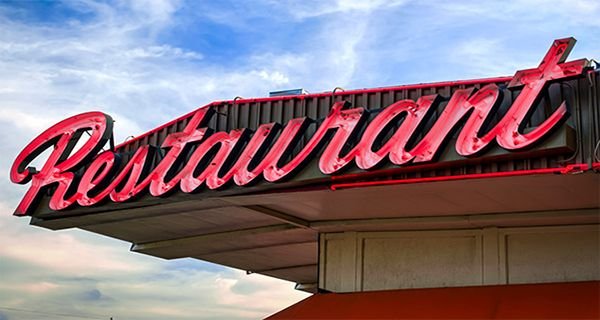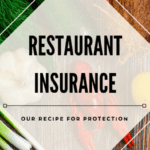In the restaurant industry, managing risks and protecting your business from potential liabilities is crucial. While standard insurance policies provide foundational coverage, Umbrella Insurance offers an additional layer of protection to shield your restaurant from significant financial losses due to unforeseen events. This guide explores what Umbrella Insurance is, why it’s important for restaurants, and how to select the right policy for your establishment.
What is Umbrella Insurance?
Umbrella Insurance is a type of liability insurance designed to provide extra coverage beyond the limits of your existing policies, such as General Liability Insurance, Commercial Auto Insurance, and Employers’ Liability Insurance. It acts as a safety net, offering additional financial protection against large claims or lawsuits that exceed the coverage limits of your primary insurance policies.
Key Coverage Areas
- Excess Liability Coverage: Umbrella Insurance kicks in when the liability limits of your primary policies are exhausted. For instance, if a customer files a lawsuit for a significant injury sustained at your restaurant and the damages exceed your General Liability Insurance limits, Umbrella Insurance covers the excess amount.
- Broader Coverage: Umbrella policies often cover additional risks that may not be included in your primary insurance policies. This can include claims of defamation, libel, or slander, as well as certain types of lawsuits not covered by your standard policies.
- Legal Defense Costs: Umbrella Insurance covers legal defense costs associated with lawsuits, even if the claim is false or frivolous. This includes attorney fees, court costs, and other legal expenses that can add up quickly in complex cases.
- Worldwide Coverage: Many Umbrella Insurance policies offer worldwide coverage, which can be beneficial if your restaurant has international operations or if a claim arises from activities outside of your primary policy’s geographical limits.
- Claims Against Your Restaurant: This includes protection against claims arising from various aspects of your restaurant’s operations, such as slips and falls, foodborne illnesses, or other accidents that result in significant financial losses.
Why is Umbrella Insurance Important for Restaurants?
Restaurants face a variety of risks, from customer injuries to employee disputes and beyond. While standard insurance policies provide essential coverage, Umbrella Insurance offers several key benefits for restaurants:
- Enhanced Financial Protection: Umbrella Insurance provides an extra layer of financial protection, helping cover large claims or settlements that exceed the limits of your primary insurance policies. This can be crucial in protecting your restaurant’s assets and ensuring long-term financial stability.
- Mitigates Catastrophic Risks: In the event of a severe incident or lawsuit, such as a major accident involving multiple parties or a high-value lawsuit, Umbrella Insurance helps cover costs that could otherwise be financially devastating.
- Comprehensive Coverage: Umbrella Insurance often covers risks and liabilities not included in your standard policies, offering broader protection and peace of mind against various unforeseen circumstances.
- Cost-Effective Solution: Umbrella Insurance is typically cost-effective compared to increasing the limits on individual policies. It provides significant additional coverage at a relatively low premium, making it a valuable investment for restaurants.
- Supports Business Continuity: By providing extra financial protection, Umbrella Insurance helps ensure that your restaurant can continue operating smoothly even in the face of significant claims or legal challenges. This supports business continuity and reduces the risk of financial disruptions.
- Reputation Management: Umbrella Insurance helps manage the financial fallout from high-profile claims or lawsuits, which can be crucial for maintaining your restaurant’s reputation and addressing public relations issues.
How to Choose the Right Umbrella Insurance Policy for Your Restaurant
Selecting the appropriate Umbrella Insurance policy involves several key considerations to ensure that your restaurant’s specific needs are met:
- Assess Your Risks: Evaluate the types of risks your restaurant faces, including potential liabilities related to customer injuries, employee disputes, and property damage. Understanding your risks helps determine the amount of Umbrella Insurance coverage you need.
- Determine Coverage Limits: Umbrella Insurance policies come with different coverage limits. Consider the maximum potential exposure to large claims or lawsuits and choose a policy with adequate limits to cover these risks. Common limits range from $1 million to $10 million or more.
- Review Policy Exclusions: Be aware of any exclusions or limitations in your policy. Common exclusions might include claims arising from intentional misconduct or criminal acts. Understanding these exclusions helps identify potential gaps in coverage.
- Check Policy Compatibility: Ensure that the Umbrella Insurance policy complements your existing insurance coverage and fills in gaps. Review how it integrates with your General Liability, Commercial Auto, and other policies to ensure comprehensive protection.
- Compare Policies: Different insurers offer varying levels of coverage and pricing for Umbrella Insurance. Compare policies from multiple providers to find one that best suits your restaurant’s needs and budget. An insurance broker specializing in commercial insurance can assist with this process.
- Consider Additional Coverages: Depending on your restaurant’s specific needs, you might need additional coverages or endorsements. Evaluate your requirements and consider adding optional coverages to enhance your policy.
- Regularly Review and Update: As your restaurant’s operations and risks evolve, regularly review and update your Umbrella Insurance policy to ensure that it remains adequate and relevant to your changing business needs.
Real-Life Examples and Case Studies
Understanding the impact of Umbrella Insurance can be clarified through real-life examples and case studies:
- Case Study 1: Major Slip-and-Fall Incident: A customer suffered severe injuries from a slip-and-fall accident at a restaurant, leading to a lawsuit with damages that exceeded the General Liability Insurance limits. The Umbrella Insurance policy covered the excess damages and legal defense costs, protecting the restaurant from substantial financial loss.
- Case Study 2: High-Profile Lawsuit: A restaurant faced a high-profile lawsuit related to a foodborne illness outbreak that resulted in multiple claims and significant damages. The Umbrella Insurance policy covered the additional costs beyond the limits of the restaurant’s standard policies, ensuring financial stability and business continuity.
- Case Study 3: Property Damage Claim: A restaurant was sued for extensive property damage caused by an accident involving its delivery vehicle. The Umbrella Insurance policy provided coverage for the damages and legal expenses that exceeded the limits of the Commercial Auto Insurance policy.
Conclusion
Umbrella Insurance is a crucial component of restaurant insurance, offering enhanced financial protection and peace of mind against significant liabilities and large claims. By understanding the key coverage areas, assessing your specific risks, and selecting the right policy, you can safeguard your restaurant’s assets, reputation, and long-term financial stability. Investing in comprehensive Umbrella Insurance ensures that your restaurant is well-protected from unforeseen events, allowing you to focus on delivering exceptional service and managing your business effectively.



